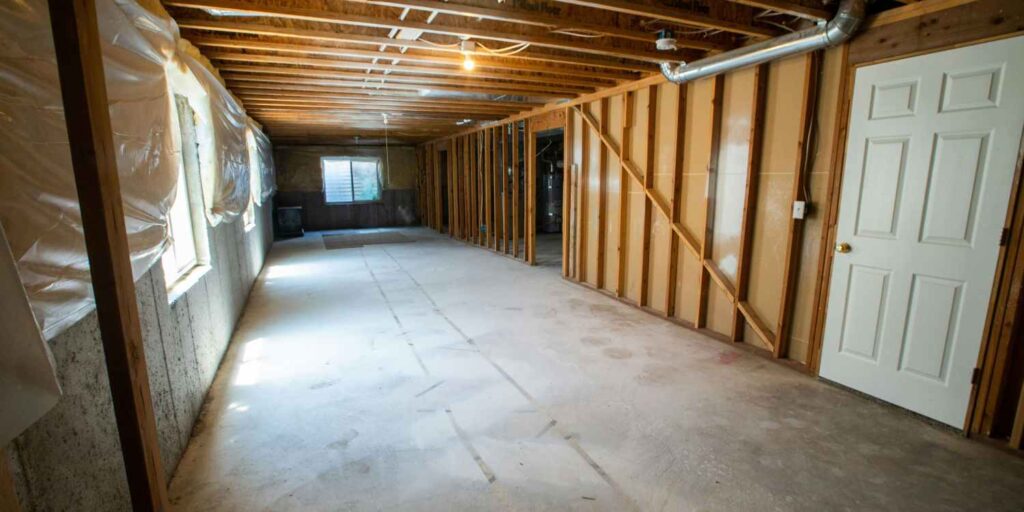Introduction:
Basement flooding can be a homeowner’s worst nightmare, causing extensive damage to property and posing health risks due to mold and mildew growth. Understanding the root causes of basement flooding is essential for prevention and mitigation strategies. In this comprehensive guide, we’ll delve into the various factors that contribute to basement flooding, from external sources to internal plumbing issues.
6 Causes of Basement Flooding

Poor Exterior Drainage:
One of the primary causes of basement flooding is inadequate exterior drainage. When heavy rainfall occurs, water can pool around the foundation of the home, seeping into the basement through cracks and gaps. Poorly positioned downspouts, clogged gutters, and improper grading around the foundation can exacerbate this issue. To prevent exterior drainage problems, ensure that downspouts extend away from the foundation, gutters are clear of debris, and the ground slopes away from the house.
Foundation Cracks and Leaks:
Cracks in the foundation walls or floors are common entry points for water during heavy rains or snowmelt. These cracks may develop over time due to soil settlement, hydrostatic pressure, or frost heave. Additionally, leaks around basement windows or doors can allow water to infiltrate the interior space. Regular inspections of the foundation for signs of cracks or deterioration and prompt repairs are crucial for preventing basement flooding.
Sump Pump Failure:
Sump pumps are designed to remove excess water from the basement and prevent flooding. However, if the sump pump malfunctions or becomes overwhelmed during heavy rainfall, it can lead to water backup and flooding. Common causes of sump pump failure include power outages, mechanical issues, or improper installation. Regular maintenance, including testing the pump and ensuring proper discharge, is essential for reliable operation.
Sewer Line Backup:
A sewer line backup can occur when the main sewer line becomes clogged or overloaded, causing wastewater to back up into the basement through floor drains or plumbing fixtures. Common causes of sewer line backups include tree root intrusion, grease buildup, or blockages caused by debris. Installing a backwater valve can help prevent sewer line backups by preventing wastewater from flowing back into the basement.
Hydrostatic Pressure:
Hydrostatic pressure occurs when groundwater levels rise due to heavy rainfall or high water tables, exerting pressure on the foundation walls and basement floor. Over time, this pressure can cause water to seep through cracks, joints, or porous concrete, leading to basement flooding. Waterproofing measures such as installing a perimeter drain tile system or applying waterproof coatings to the foundation walls can help alleviate hydrostatic pressure and prevent water intrusion.
Plumbing Failures:
Internal plumbing failures, such as burst pipes, leaking water heaters, or malfunctioning appliances, can also contribute to basement flooding. These issues may occur suddenly and without warning, causing significant water damage if not addressed promptly. Regular maintenance of plumbing systems, including inspections for leaks or corrosion, can help identify potential problems before they escalate into flooding incidents.
Conclusion:
Basement flooding can result from a variety of factors, both external and internal. By understanding the common causes of basement flooding and implementing preventative measures, homeowners can protect their property from water damage and costly repairs. Regular maintenance, proper drainage, and proactive solutions such as sump pumps and backwater valves are essential components of a comprehensive flood prevention strategy. Remember, when it comes to basement flooding, prevention is key.
Remember, If you’re having any issues regarding Basement Flooding (Or plumbing issues in general), do not hesitate to contact us through our website CJ Drain & Plumbing. You can send us any question you have and/or ask for a quote!
At CJ Drain & Plumbing, our team of professionals is always ready to help you.

